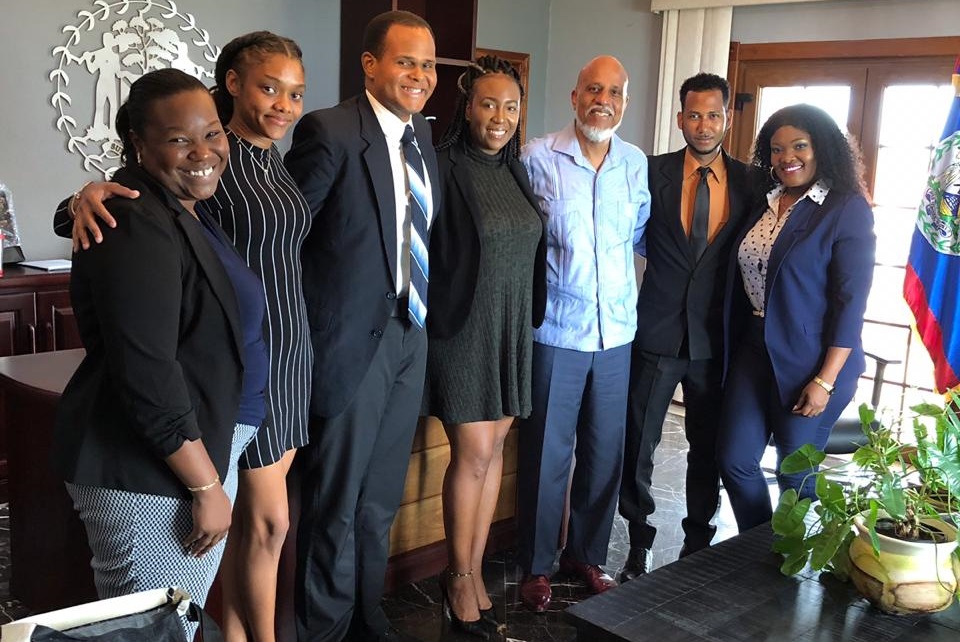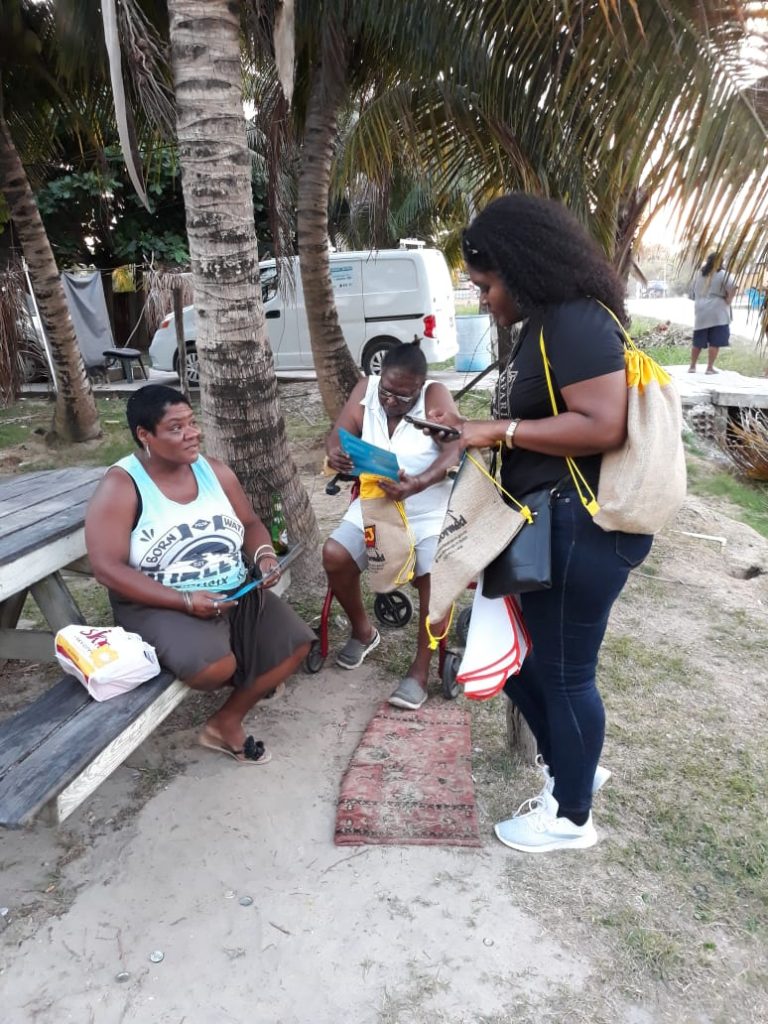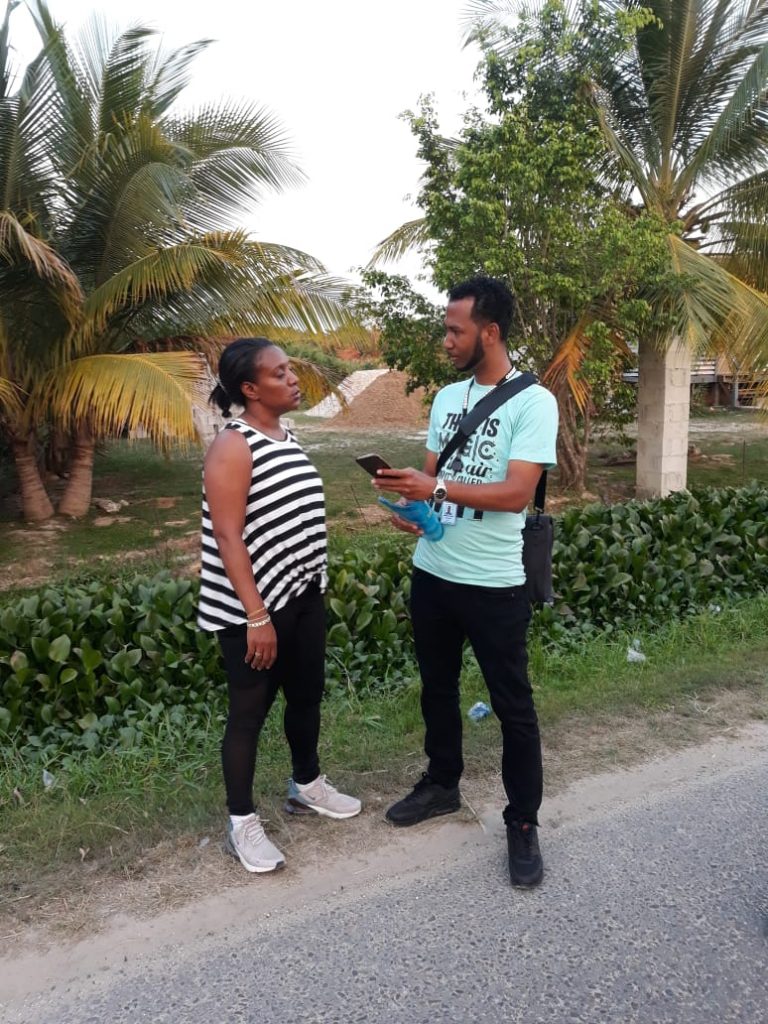April 17, 2019 – The Caribbean Democrat Union (CDU) as part of its mission to advance good governance in the region embarked on an Observation Mission to Belize for the ICJ Referendum. The people of Belize were to decide “Yes” or “No” on whether to take the matter of the long standing border dispute with Guatemala to the International Court of Justice (ICJ).
Five
young professionals were selected to be part of the CDU Observation Team:
·
Ms. Kimberley McLeod, Jamaica
·
Ms. Sakera Cook, Turks and Caicos Islands
·
Ms. Terraine Webster, Anguilla
·
Mr. Christopher Grant, St. Vincent and the Grenadines
·
Mr. Shadick Bethel, Grenada
The
Observer Team arrived on Friday April 6th 2019 and departed Belize on Thursday
April 11th 2019.
The
following activities took place as part of the CDU Observation Mission:
·
Referendum Education Fair, Saturday April 6th
·
Cultural Enrichment (Understanding Belizean History), Sunday April 7th
·
Meeting with Chief Elections Officer, Monday April 8th
·
Meeting with Prime Minster Hon. Dean Barrow, Tuesday April 9th
·
Community Engagement, Tuesday April 9th
·
Survey in urban and rural areas of Belize on the Referendum, Wednesday April
10th
Due to an
injunction filed by the Opposition Party in Belize and upheld by the Court of
Appeal, the ICJ Referendum was postponed. However, the CDU Observation Team was
still able to carry out and satisfy the objectives of the mission:
·
To assess the effectiveness of the voter education campaign
·
To identify motivating factors for persons to participate in the Referendum
This CDU
Observer Mission to the ICJ Referendum in Belize was supported through partial
funding from the Westminster Foundation for Democracy (WFD). In addition, permission to observe the ICJ
Referendum was granted by the Election and Boundaries Department of Belize and
transportation and other logistics were facilitated locally by Ms. Anazette
Olivera, Volunteer Coordinator International, Boundaries Unit, Referendum
Office of Belize.
The CDU
joins with the European Union, United Kingdom and the United States of America
in support of the ICJ Referendum in Belize. This is an important decision and
the people of Belize have the fundamental right to participate in a free and
democratic process to make a final determination on this long standing matter.
The CDU hopes that the people of Belize will be given the opportunity to do so
as soon as possible.
The CDU thanks members of the Observer Team, the Westminster Foundation for Democracy, the Election and Boundaries Department of Belize, Ms. Anazette Olivera and other local affiliates for making this observation mission possible.
Press Release: CDU
Photo Descriptions:
Header: Observer Team meeting with PM of Belize Hon. Dean Barrow from left to right – Ms. Anazette Olivera (local coordinator), Ms. Terraine Webster (Observer Team Member, Anguilla), Mr. Christopher Grant (Observer Team Member, St. Vincent and the Grenadines), Ms. Kimberley McLeod (Observer Team Member, Jamaica), PM of Belize Hon. Dean Barrow, Mr. Shadick Bethel (Observer Team Member, Grenada), Ms. Sakera Cook (Observer Team Member, Turks and Caicos Islands).
1st insert: Observer Team Member Sakera Cook conducting survey in the field
2nd Insert: Observer Team Member Shadick Bethel conducting survey in the field


 Caribbean News7 days ago
Caribbean News7 days ago
 Caribbean News7 days ago
Caribbean News7 days ago
 Caribbean News1 week ago
Caribbean News1 week ago
 Caribbean News1 week ago
Caribbean News1 week ago
 Bahamas News7 days ago
Bahamas News7 days ago
 News7 days ago
News7 days ago
 Bahamas News1 week ago
Bahamas News1 week ago
 News7 days ago
News7 days ago













